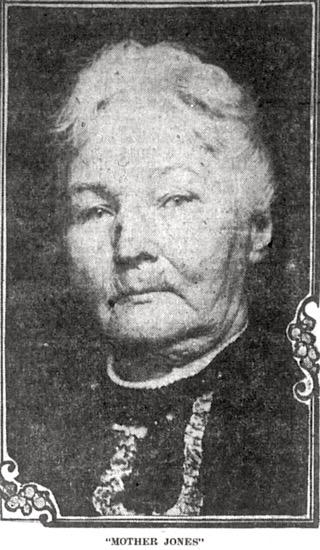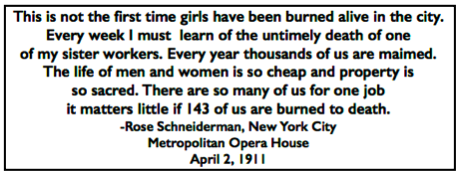 —————
—————
Hellraisers Journal – Wednesday May 21, 1913
Arthur E. McFarlane Tells the Story of “Rotten Risk” and the Triangle Fire
From Collier’s National Weekly of May 17, 1913:
MORE than two years ago [March 25, 1911], in New York, 146 factory workers, most of them girls, were burned to death on the upper floors of the Asch Building. It will seem that every possible story of that fire has long ago been told. But the insurance story has never been told. And in the end it may be held to be the one vital story. I am going to tell it now.
COLLIER’S has been charged with saying much of fires due to crime and intention, and little of those due to carelessness and negligence. This, then, is the story of a fire which may well have been due to carelessness and negligence. But there are different kinds of carelessness and negligence. If a man can obtain $100,000 of insurance upon a value of $50,000, he will very naturally be careless and negligent. If a fire means not loss but gain to him, what more natural than that he should leave even the most dangerous of conditions uncorrected? And if behind such an insurer we have an insurance system which permits and encourages over-insurance, which feels no obligation to inspect, remove dangers, or to do anything whatever other than make the insurance rate proportionate to the risk, the fire will follow almost as certainly as if kindled with matches and gasoline…
The Perfect Fire Trap
BUT I can best begin with the physical conditions in the Triangle factory-Messrs. Isaac Harris and Max Blanck, proprietors-as they were before the fire.
The 550 girls and the 50 men on the eighth, ninth, and tenth floors of the Asch Building were employed, all of them, at least 100 feet above the street. The floors of their workrooms were covered with wicker baskets, which, like the shelves above them, were filled with the most inflammable of muslin fabrics. On the eighth floor there were two barrels of oil, on the ninth two more. Beneath every sewing machine the floor was soaked with oil. Great bins beneath the cutters’ tables were filled with rags. Oil-soaked rags and lint lay about the banks of motors and the high-speed floor-way gearing which supplied the power for the machines. And, so long as they did not do it openly, the men who worked in the Triangle factory were allowed to smoke.
The 550 girls were packed so closely together that their chairs dovetailed. They had the use of only one narrow door on each floor. And they could reach it only through a single circuitous passageway not two feet wide. On each floor one window opened upon a single fire escape. According to the New York Fire Commissioner, it would have taken them three hours to escape by it. “If you could visit one of those twelve- and fourteen-story workshops”-the Triangle factory was only one of hundreds-testified Fire Chief Croker before a New York Insurance Commission three months before the fire, “you would find it very interesting to see all those people with absolutely no protection whatever-without any means of escape of any kind, in case of fire.”
[…..]
[Emphasis added.]

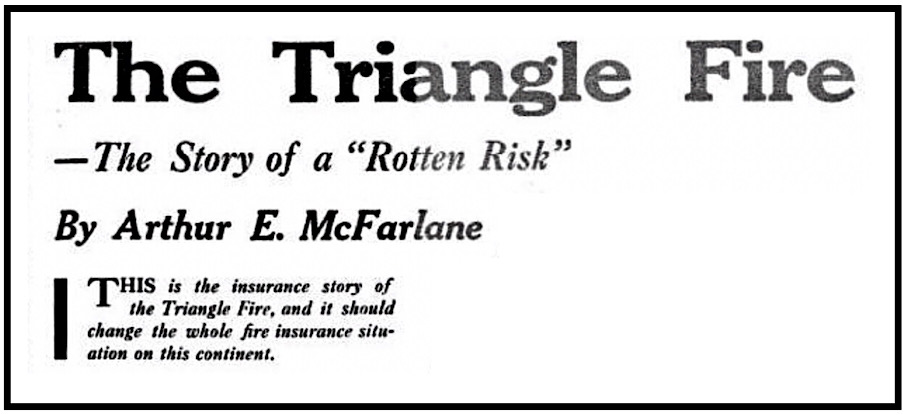
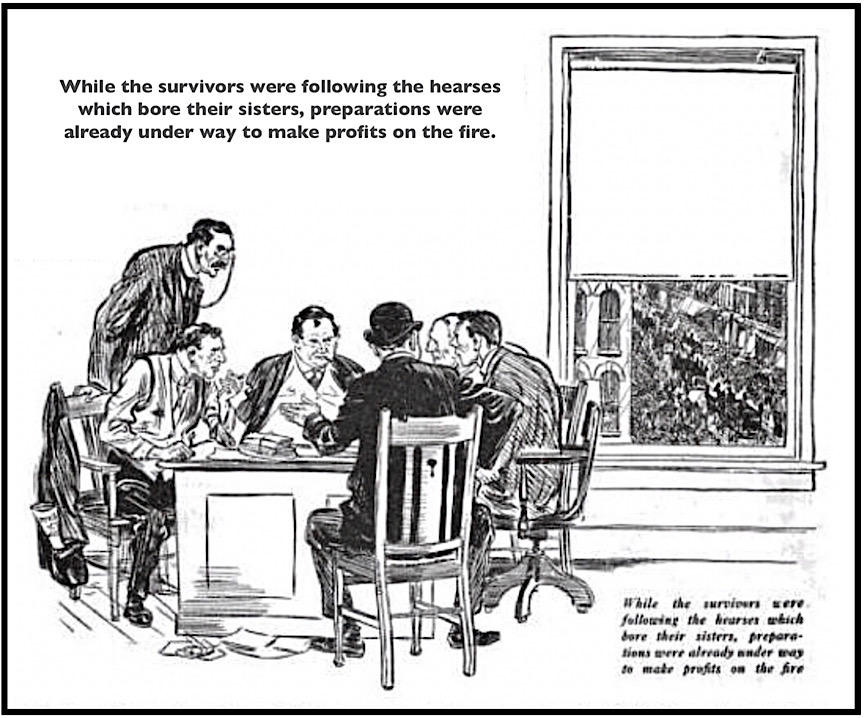
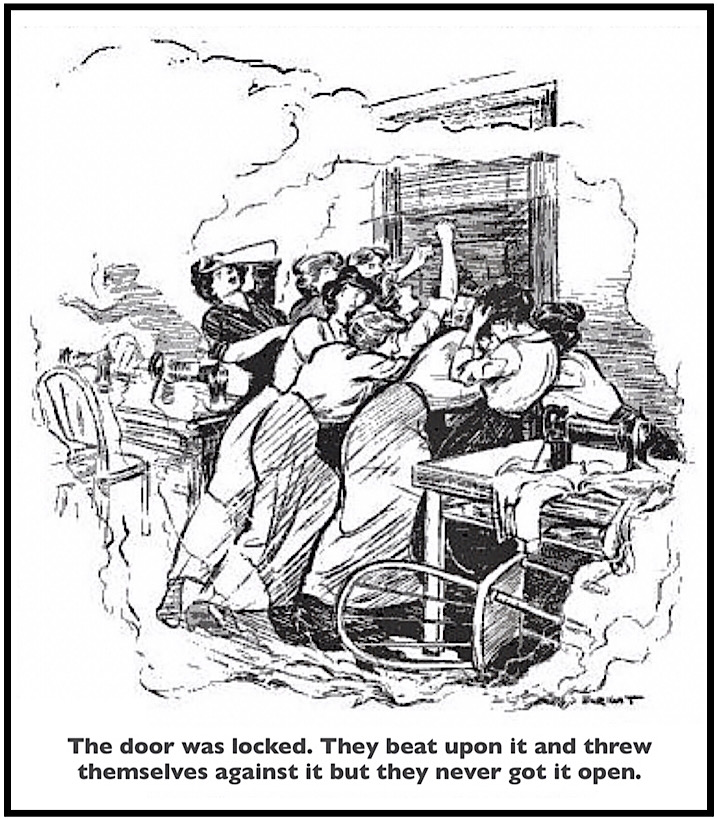
 —————
—————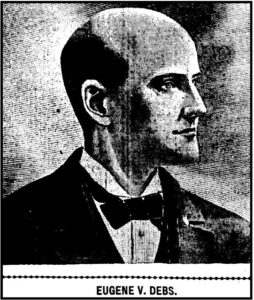
 —————
—————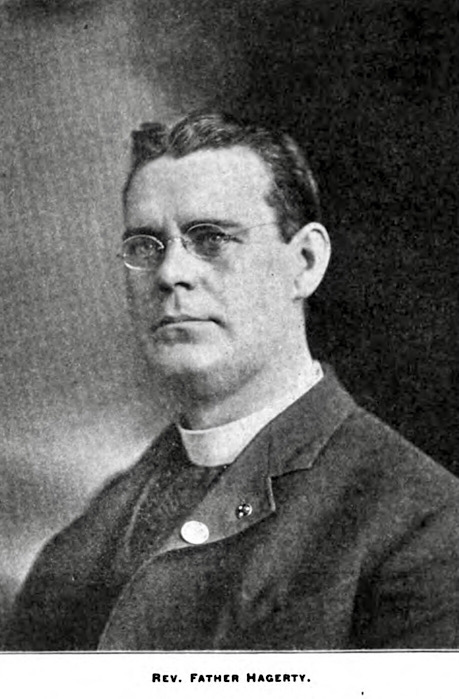
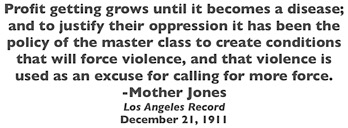 —————
—————